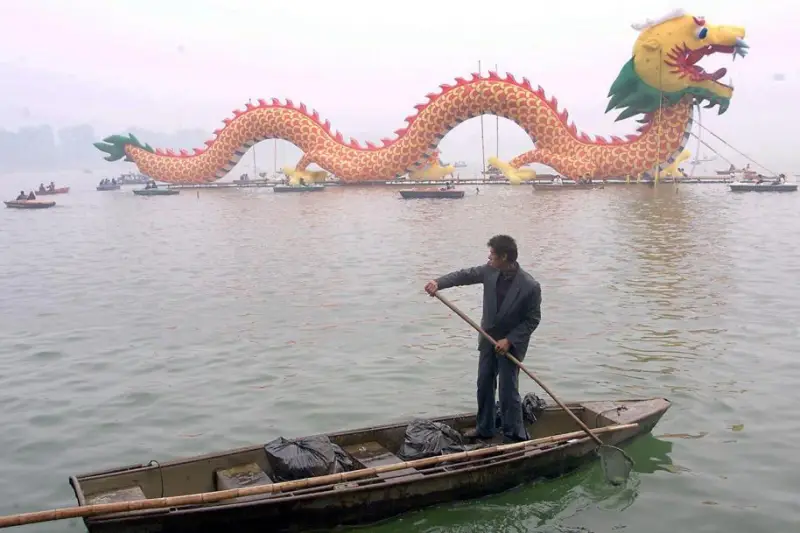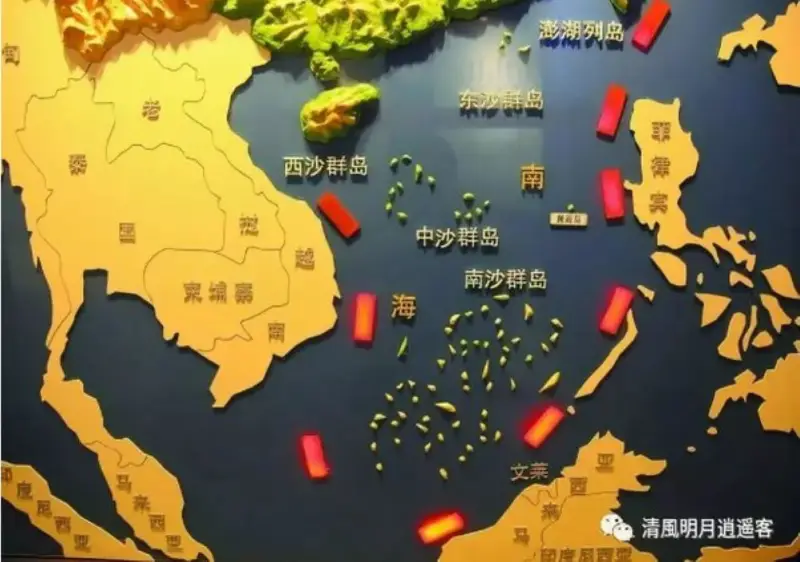Purely Chinese South China Sea

Oil of the East – eastern vector
Territorial disputes in the South China Sea basin are still fraught with military conflicts between countries in the region. And these conflicts occur quite regularly and not for the first time. All this is due to China’s long-standing claims to almost 80% of the waters of this sea, which includes several archipelagos.
The waters traditionally disputed by Beijing extend almost to the coasts of other countries in the region and are included in the official geographical maps of the PRC. The PRC's interest in the islands is understandable - large resources of natural gas and especially oil have been explored in this basin, and the PRC, as is known, is the largest net importer of oil and gas.
It is through the South China Sea that the most important economic routes pass - between the Far Eastern countries on the one hand and the countries of the Indian Ocean and the Middle East on the other. In turn, these routes trodden over centuries connect with the transcontinental shipping artery Indian Ocean - Red Sea - Suez Canal - Mediterranean.
The economic and political reasons prompting Beijing to control almost the entire South China Sea basin are quite obvious. However, the US Navy has been permanently present in this transit zone since the end of World War II.
Here, in this basin, since September 2021, there has been a military bloc consisting of the United States, Australia and Great Britain (AUKUS), aimed primarily at countering Beijing’s expropriation of the predominant part of the South China Sea. In addition, British troops are still based in the former British (until 1984) Brunei, which are also aimed at protecting the Sultanate in the event of a conflict with the PRC.
When Vietnam had no time
Meanwhile, half a century ago, in the second decade of January 1974, the Chinese Navy captured the South Vietnamese Paracel Islands with an area of only 11 square meters in the northern sector of the South China Sea. km. However, their small size does not detract from their strategic importance.
It is interesting that at first in the DRV - North Vietnam, which was helped not only by the USSR, but also by China in the fight against the South, this action was assessed quite positively. As almost direct assistance from Beijing to the military defeat of the pro-American Saigon regime in the conflict with the Democratic Republic of Vietnam and with the South Vietnamese partisans.
However, the Chinese side very quickly clarified its position. The Ministry of Foreign Affairs and the Ministry of Defense of the People's Republic of China almost immediately stated that these islands are “an integral part of China, temporarily captured by Saigon.” It is characteristic that the Soviet Foreign Ministry very briefly condemned the seizure of these islands - Moscow was clearly afraid of a new aggravation of relations with China.

At the same time, the countries of Southeast Asia, Japan, and Australia expressed “concern about the unilateral actions of communist China.” Taiwan stated that it is necessary to recognize “the restored sovereignty of China” in the archipelago “if the communist regime in mainland China falls.”
But the United States simply remained silent: this was due to the increasingly active partnership between Washington and Beijing in countering the USSR. The DPRK also remained silent, since Beijing’s claims to some North Korean areas bordering China remained.
A characteristic touch: Hanoi and Saigon in those days, forgetting about the internecine war, for the first time showed some kind of general Vietnamese solidarity. They almost simultaneously responded to Chinese expansion with official statements that this archipelago is the original Vietnamese territory. But Beijing ignored this position.
The Chinese leaders were confident that the mutual hostility of North and South Vietnam would not allow them to jointly force the PRC to leave the Paracel archipelago. In addition, by the end of 1973, the United States had completely withdrawn its troops from South Vietnam, which predetermined its military-political collapse already in March-April 1975.
Cruel Chinese reality
By the early 2020s, China had created a powerful air and naval infrastructure in the Paracel Islands, which all neighboring countries consider a threat to their security. At the end of September 2023, Pham Thu Hang, director of the information and press department of the Vietnamese Foreign Ministry, issued a statement in which she recalled Vietnamese sovereignty in the archipelago:

But Beijing did not react to this statement. Meanwhile, at the end of December 2023, another armed incident occurred in the South China Sea - in this case between the PRC and the Philippines. Moreover, the head of the Chinese Ministry of Foreign Affairs, Wang Yi, directly warned his Filipino counterpart Enrico Manalo about the consequences for the Philippines in connection with the incident:
China's territorial claims - and not only in the southern seas, are an age-old tradition that has always been limited only by the country's weakness. But today, when only Western and pro-Western propaganda can talk about any weakness of the PRC, the appetites of official Beijing are hardly limited to the 50th anniversary of the “appropriation” of the Paracel archipelago.
Damansky Island, repeated subsequent “forays to the North”, the thirst to one way or another crush Mongolia, an irresistible craving for Taiwan, and also business expansion wherever possible - all these are links in one chain.
Information